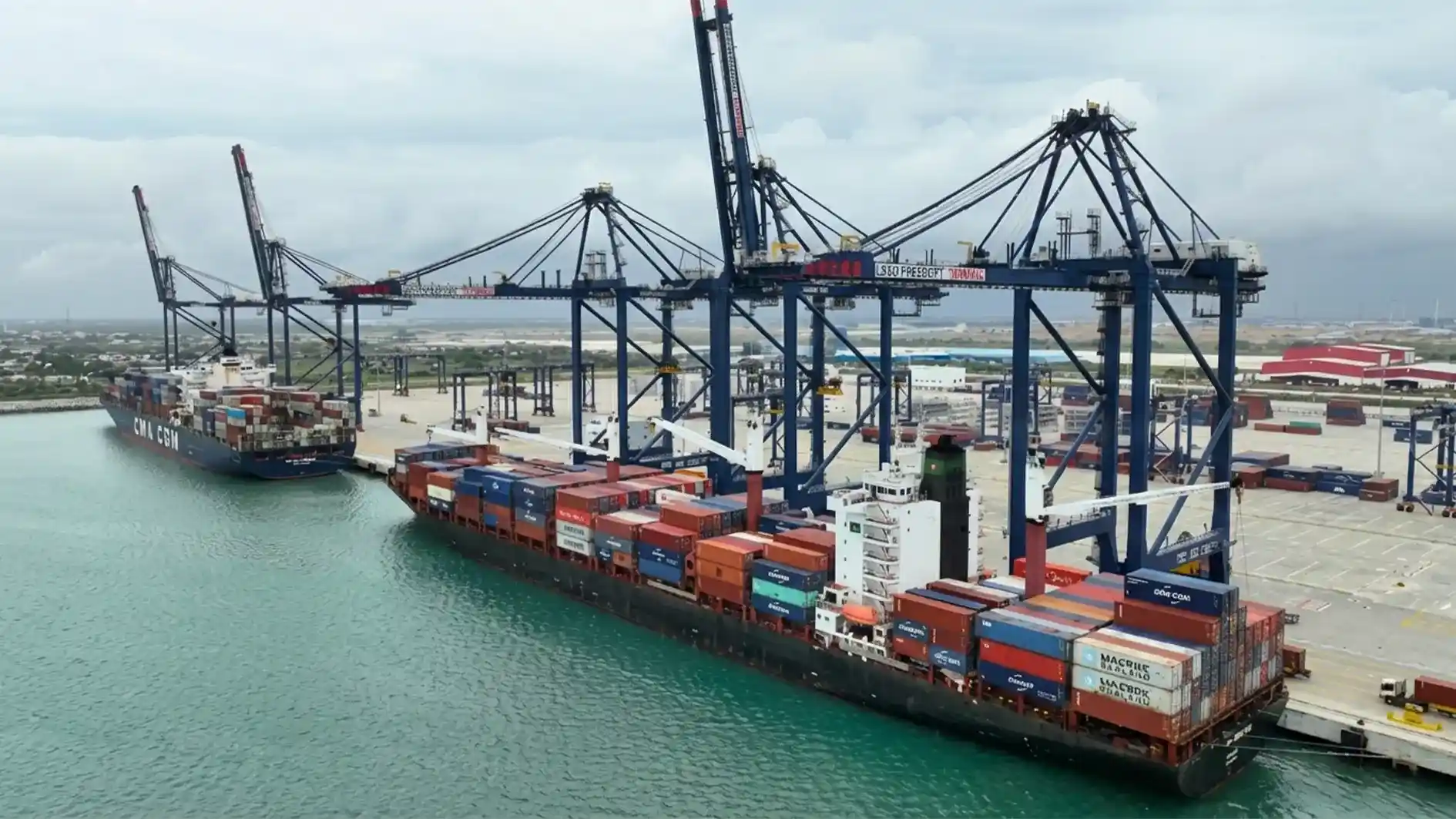In a landmark move set to redefine the future of the continent’s coffee industry, Tanzania is hosting the G25 African Coffee Summit in Dar es Salaam on February 21–22, 2025. This high-profile event brings together key stakeholders, policymakers, industry experts, and representatives from 25 African coffee-producing nations with a singular goal: to enhance production, secure greater value retention, and unlock the full potential of Africa’s coffee on the global stage.
The summit, widely anticipated and trending in business circles today, is more than just a meeting of minds—it represents a concerted effort to transform an industry historically characterized by the export of raw beans and overseas processing. With robust discussions slated to cover trade policies, investment strategies, technology adoption, and sustainable practices, the event aims to reverse long-standing trends in the value chain and bolster economic opportunities across the continent.
Setting the Stage: The Importance of Africa’s Coffee Industry
Africa’s coffee industry is steeped in history and cultural significance, yet its economic contributions have often been under-realized on the global scale. Countries like Tanzania, Ethiopia, Kenya, and Uganda are renowned for producing coffee with distinct flavor profiles prized by connoisseurs worldwide. Despite this, much of Africa’s high-quality coffee is exported in raw form and then processed abroad, leaving local economies with only a fraction of the potential revenue.
At the heart of the summit’s agenda is the recognition that local value addition—processing coffee domestically—can create a more sustainable model. The initiative is expected to yield multiple benefits:
- Increased Revenue: By processing coffee within Africa, producers can capture additional margins, enhancing overall profitability.
- Job Creation: Expanding the domestic processing industry can spur employment, particularly among the continent’s youth, and promote skills development.
- Economic Diversification: A robust, value-added coffee sector can help diversify national economies, reducing reliance on commodity exports.
- Trade Empowerment: Enhanced value chains may enable African nations to negotiate better terms in global trade, positioning them as key players rather than mere raw material suppliers.
This strategic pivot toward local processing reflects a growing understanding among African leaders and industry experts that sustainable development requires rethinking traditional export models. As Tanzanian officials and their counterparts prepare to sign the Dar es Salaam Declaration, their aim is clear: to reshape the industry’s narrative from one of lost opportunities to one of economic empowerment and global competitiveness.
The G25 Summit: Objectives and Key Themes
The G25 African Coffee Summit is organized with several ambitious objectives in mind. According to Primus Kimaryo, Director General of the Tanzania Coffee Board (TCB), the summit will focus on:
- Enhancing Coffee Production: Discussions will delve into techniques for improving yield quality and quantity, exploring innovations in agricultural practices and climate-smart technologies.
- Investment Strategies: A core element of the summit will be strategies for attracting and channeling investment into local coffee processing facilities and infrastructure. Industry experts will analyze financing models, public-private partnerships, and venture capital opportunities tailored to the coffee sector.
- Trade and Policy Reform: Policy frameworks that currently hamper local value addition will be critically assessed. The summit aims to harmonize regulations among participating nations and foster a conducive environment for intra-African trade.
- Youth Employment and Skills Development: With smallholder farms making up 90 percent of Tanzanian coffee production, there is a pressing need to modernize the sector and create opportunities for young people. Government officials and agricultural experts will explore training programs and technology transfers to empower the next generation of coffee producers.
As Justa Katunzi, acting assistant director for crop production at Tanzania’s Ministry of Agriculture, noted, the summit is “an important step in positioning coffee as a key driver of Tanzania’s—and Africa’s—economy.” Her remarks echo a broader sentiment across the continent: that strategic investment in the coffee value chain can spur sustainable development and significantly reduce youth unemployment.
Historical Context and Persistent Challenges
Historically, Africa has been synonymous with coffee excellence, yet the economic benefits of this commodity have not been fully harnessed within the continent. Coffee production in Tanzania, for example, ranges between 30,000 and 40,000 metric tonnes per year, with Arabica coffee accounting for about 70 percent and Robusta the remaining 30 percent. Smallholder farms dominate the landscape, providing livelihoods for countless families but often lacking the resources needed for modern processing and quality enhancement.
Several challenges have long plagued the industry:
- Raw Export Model: A significant portion of Africa’s coffee is exported as raw beans. These beans are then processed in international markets, where added value is captured abroad. This practice results in lost revenue and diminished opportunities for local economic growth.
- Infrastructure Gaps: Many African countries face logistical and infrastructural challenges that impede efficient transportation, storage, and processing of coffee. Inadequate facilities mean that even high-quality beans may not reach their full market potential.
- Climate Change: Changing weather patterns, including unpredictable rainfall and rising temperatures, have adversely affected coffee production. These environmental challenges necessitate adaptive measures and investment in climate-resilient agricultural practices.
- Financial Barriers: Limited access to financing for smallholder farmers and local processors has constrained the growth of domestic coffee value chains. Without sufficient capital, investments in advanced processing technology remain out of reach for many producers.
- Market Volatility: Global coffee prices can be highly volatile, leaving producers exposed to market fluctuations that undermine long-term planning and stability.
The G25 summit seeks to address these issues head-on, offering a forum for collaborative problem-solving and policy innovation. By acknowledging these persistent challenges, African leaders are positioning themselves to develop comprehensive solutions that not only enhance the coffee sector but also create a model for other agricultural industries.
Global Market Trends and the Value Chain Dilemma
The global coffee market, valued at over $100 billion, is fiercely competitive, with major players in Latin America, Asia, and increasingly, Africa. African coffee is celebrated for its unique characteristics—rich flavors, diverse profiles, and organic cultivation practices—but the continent has long struggled to capture a larger share of the value chain.
Ambassador Solomon Rutega, Secretary General of the Inter-African Coffee Organisation (IACO), encapsulated the dilemma: “Much of Africa’s coffee is exported, processed abroad to increase its value, and then sold back to the continent at high prices.” His remarks underscore the paradox of a region that produces some of the world’s finest beans yet often receives only a small slice of the final product’s profit margins.
Several factors contribute to this imbalance:
- Global Supply Chains: Coffee, like many agricultural commodities, is embedded within complex global supply chains. Multinational corporations, with their vast processing networks, often dictate market terms, leaving African producers with limited bargaining power.
- Quality and Branding: While African coffee is renowned for its quality, there is a growing need to develop strong, continent-based brands that can command premium prices on the international market. Branding initiatives, coupled with certification programs for sustainability and fair trade, could enhance the global perception of African coffee.
- Technological Innovation: Advances in processing technology and digital supply chain management offer opportunities for value addition. From precision agriculture to blockchain-enabled traceability, technological innovations can help African producers maintain quality control and secure better prices.
- Consumer Trends: There is a rising global demand for ethically sourced and sustainably produced coffee. Consumers, particularly in developed markets, are increasingly willing to pay a premium for products that offer transparency and social responsibility. By leveraging these trends, African coffee could position itself as a luxury commodity in international markets.
By aligning discussions with these global trends, the summit is poised to create a roadmap for integrating African coffee into high-value markets. The proposed shift towards local processing is not merely about economic gain—it represents a strategic recalibration aimed at redefining Africa’s role in the global coffee economy.
Investment Strategies: Fueling the Transformation
A recurring theme at the summit is the urgent need for increased investment in the African coffee value chain. The traditional model—characterized by exporting raw beans—has stifled the potential for higher revenue generation and local job creation. By shifting the focus to domestic processing and value addition, African nations can tap into a broader spectrum of economic benefits.
Key investment strategies under discussion include:
- Modernizing Processing Facilities: Upgrading existing infrastructure and establishing new, state-of-the-art processing plants are essential steps. These investments will not only improve the quality and consistency of coffee products but also reduce reliance on foreign processors.
- Public-Private Partnerships: Governments and private investors can collaborate to finance critical projects. Such partnerships could unlock significant capital for infrastructure development, technological innovation, and market expansion.
- Venture Capital and Impact Investing: There is growing interest among venture capitalists and impact investors in African agriculture. By channeling funds into the coffee sector, investors can drive innovation, improve supply chain efficiencies, and foster sustainable practices that benefit local communities.
- Digital Technologies: Investments in digital tools—such as blockchain for supply chain transparency, precision agriculture technologies, and mobile platforms for farmer financing—are crucial. These innovations can streamline operations, enhance quality control, and improve market access for smallholder farmers.
- Sustainable Practices: Financing sustainable farming practices, including organic cultivation and climate-smart agriculture, is becoming increasingly important. Such investments not only improve the environmental footprint of coffee production but also cater to the growing global demand for ethically produced goods.
By focusing on these strategic areas, the summit aims to create a more resilient and profitable coffee sector. In doing so, African nations can reduce their dependency on volatile global markets and build a sustainable economic future that benefits all stakeholders—from smallholder farmers to national economies.
Youth Employment and Community Empowerment
One of the most pressing challenges in many African economies is youth unemployment. The coffee sector, with its extensive network of smallholder farms, offers a unique opportunity to address this issue. At the summit, discussions will center on how to transform the coffee value chain into a catalyst for job creation and skills development.
Key initiatives include:
- Training and Capacity Building: Programs designed to equip young people with modern agricultural techniques, processing skills, and business acumen are essential. By investing in education and vocational training, governments can ensure that the next generation is ready to take on leadership roles within the coffee industry.
- Entrepreneurship and Innovation Hubs: Establishing centers of excellence where young entrepreneurs can access mentorship, financing, and technical support can foster innovation in the sector. These hubs could serve as incubators for start-ups focused on agri-tech, sustainable processing, and digital market platforms.
- Cooperatives and Collective Bargaining: Empowering smallholder farmers through cooperatives can improve negotiating power, reduce costs, and enhance market access. Cooperatives also provide a platform for knowledge-sharing and collective investment in infrastructure and technology.
- Social Impact Investments: With the increasing emphasis on ethical business practices, there is a growing market for social impact investments. Such funding mechanisms can provide the capital needed to implement community-based projects that boost employment and improve livelihoods.
By leveraging the energy and innovation of its youth, Africa can not only enhance its coffee production but also create a model for sustainable rural development. The summit’s focus on youth empowerment is a testament to the belief that investing in human capital is as critical as investing in physical infrastructure.
Policy Reform and the Dar es Salaam Declaration
The culmination of the summit’s discussions will be the signing of the Dar es Salaam Declaration—a document aimed at formalizing a shared vision for Africa’s coffee future. The declaration is expected to outline key policy reforms and strategic initiatives that participating nations will adopt to strengthen the domestic coffee value chain.
Key components likely to be included in the declaration are:
- Commitment to Local Value Addition: Nations will pledge to develop and support domestic processing facilities, ensuring that a larger share of the coffee value chain remains within Africa.
- Investment in Infrastructure: Governments will commit to upgrading transportation, storage, and processing infrastructure. Such investments are critical to reducing post-harvest losses and maintaining the quality of coffee products.
- Harmonization of Trade Policies: In an effort to boost intra-African trade, the declaration will advocate for the standardization of trade regulations. This harmonization is expected to reduce bureaucratic barriers and foster a more integrated market.
- Support for Smallholder Farmers: Recognizing that smallholder farms are the backbone of the coffee industry, the declaration will call for enhanced support measures. These could include access to affordable financing, extension services, and technical training programs.
- Promotion of Sustainable and Ethical Practices: With growing global demand for sustainably produced coffee, the declaration will emphasize the importance of environmentally friendly and socially responsible farming practices. This includes initiatives for organic farming, fair trade certification, and climate resilience.
- Digital Transformation Initiatives: A forward-looking section of the declaration is expected to promote the adoption of digital technologies in the coffee sector. From blockchain-enabled traceability to mobile-based financial services, these initiatives aim to modernize the industry and enhance transparency.
The Dar es Salaam Declaration is not merely a symbolic gesture—it is envisioned as a blueprint for tangible change. By setting clear targets and outlining actionable strategies, the declaration could serve as a catalyst for transforming Africa’s coffee industry, ensuring that its benefits are felt from the farm level to the global marketplace.
Global Implications and the Road Ahead
The implications of a successful summit extend far beyond the borders of Tanzania. A reformed and revitalized African coffee sector can influence global trade dynamics in several ways:
- Shifting Market Power: By capturing more of the value chain domestically, African nations can assert greater control over global coffee pricing and supply. This shift could challenge the dominance of traditional coffee-producing regions and create a more balanced international market.
- Enhanced Quality and Branding: With the focus on local processing and quality control, African coffee can gain a competitive edge in premium market segments. This enhancement could lead to stronger branding, higher consumer loyalty, and better market differentiation.
- Sustainability Leadership: As consumers worldwide increasingly prioritize ethical sourcing and sustainability, Africa’s commitment to environmentally friendly and socially responsible coffee production could serve as a model for the industry. This leadership in sustainable practices can open new markets and foster long-term global partnerships.
- Technological Innovation: The integration of advanced technologies into the coffee value chain—such as precision agriculture and blockchain for supply chain management—could position Africa at the forefront of agricultural innovation. Such advancements are likely to have spillover effects, benefiting other agricultural sectors and enhancing overall economic resilience.
Moreover, the summit underscores a broader trend in emerging markets, where there is a concerted push to shift from raw commodity exports to high-value, processed goods. This evolution is critical for sustainable development, as it not only increases revenue but also builds local expertise, improves quality control, and creates jobs.
A Closer Look at Tanzania’s Role in the Coffee Revolution
As host of the G25 summit, Tanzania is positioning itself as a leader in the regional transformation of the coffee industry. With production figures that range between 30,000 and 40,000 metric tonnes annually and a production mix favoring Arabica coffee, Tanzania offers both the raw materials and the potential for significant value addition.
Government officials have long recognized the strategic importance of the coffee sector in driving economic growth. Recent policy shifts and increased investments in rural infrastructure have laid the groundwork for a more integrated coffee value chain. Tanzanian authorities are actively promoting initiatives that encourage domestic processing, and the upcoming summit represents a critical step in formalizing these efforts on a continental scale.
The country’s focus on supporting smallholder farmers—who make up 90 percent of its coffee production—demonstrates a commitment to inclusive growth. By investing in training programs, modern processing facilities, and digital technologies, Tanzania hopes to transform coffee production into a robust engine for economic development. The expected outcomes include higher quality coffee products, improved market access, and ultimately, a more prosperous agricultural sector that benefits not only producers but also the broader economy.
Integrating Global Best Practices and Local Traditions
One of the most promising aspects of the summit is its potential to blend global best practices with local traditions. Africa’s rich history in coffee cultivation is a powerful asset that, when combined with modern technology and international investment, can create a unique competitive advantage.
Innovative approaches under discussion include:
- Leveraging Indigenous Knowledge: Traditional farming practices, honed over generations, offer valuable insights into sustainable cultivation and biodiversity preservation. By integrating these practices with modern agricultural techniques, African coffee producers can achieve both high quality and environmental sustainability.
- Digital Transformation: Embracing technologies such as IoT (Internet of Things) devices, remote sensing, and data analytics can help optimize coffee production. For instance, precision agriculture tools can guide farmers on optimal planting times and fertilizer application, thereby increasing yield and reducing waste.
- Enhanced Traceability: Consumers are increasingly demanding transparency in the supply chain. Blockchain and other digital tracking systems can verify the origin and quality of coffee, ensuring that the benefits of premium pricing reach local producers. Such systems not only build consumer trust but also enhance the reputation of African coffee on a global scale.
- Sustainable Certifications: Adopting internationally recognized certifications for organic and fair trade coffee can open access to niche markets. These certifications serve as a mark of quality and ethical production, appealing to consumers who prioritize sustainability.
By harmonizing modern innovations with time-tested agricultural practices, the summit aims to create a resilient and adaptable coffee sector. This integrated approach is expected to set new benchmarks in quality, sustainability, and economic efficiency, ensuring that Africa’s coffee remains competitive in an ever-evolving global market.
Looking to the Future: Opportunities and Challenges
As the G25 summit unfolds, it is clear that the path forward for Africa’s coffee industry is filled with both promise and challenges. The ambitious plans discussed at Dar es Salaam are poised to create substantial economic benefits, but successful implementation will require coordinated efforts at multiple levels:
- Infrastructure Development: Significant investments in processing plants, transportation networks, and digital systems are needed to modernize the coffee value chain. These projects must be supported by both public funding and private capital.
- Policy Harmonization: Achieving a unified approach among 25 diverse nations is no small feat. Aligning trade regulations, quality standards, and investment policies will require sustained political will and effective regional cooperation.
- Climate Resilience: With climate change posing a persistent threat to agricultural productivity, adaptive strategies must be a core component of any long-term plan. Research into climate-resilient crop varieties, improved water management, and sustainable farming practices is essential.
- Market Dynamics: Navigating the complexities of global trade, including price volatility and shifting consumer preferences, will be an ongoing challenge. African leaders must work to build resilient market structures that can withstand external shocks while capitalizing on emerging trends.
- Inclusivity and Fair Distribution: Ensuring that the benefits of industry transformation reach smallholder farmers and local communities is critical. Policies and investments must prioritize equitable growth and prevent the marginalization of the very stakeholders who are the backbone of the industry.
While the challenges are significant, the potential rewards are transformative. A successful restructuring of Africa’s coffee value chain can serve as a model for other sectors and regions, demonstrating that strategic investment and collaborative policy-making can drive sustainable economic development.
Conclusion: A New Dawn for African Coffee
The G25 African Coffee Summit in Dar es Salaam represents a turning point for the continent’s coffee industry. With a focus on local value addition, sustainable practices, and inclusive growth, the summit is poised to address longstanding challenges and unlock new opportunities for Africa’s coffee producers. By drawing on global best practices, integrating innovative technologies, and committing to policy reforms encapsulated in the Dar es Salaam Declaration, African nations are charting a bold course toward economic empowerment and market leadership.
The potential impact of these initiatives extends far beyond the borders of Tanzania. As the world grapples with changing trade dynamics and evolving consumer preferences, a revitalized African coffee sector could reshape global markets, shift the balance of power in the coffee trade, and serve as a beacon of sustainable development for emerging economies.
In the coming months and years, the success of this summit will be closely monitored by industry analysts, investors, and policymakers worldwide. The outcomes of the discussions in Dar es Salaam have the potential to set new standards for agricultural value chains, not only in coffee but in other commodities as well. For smallholder farmers, for national economies, and for global consumers seeking quality and sustainability, the future of African coffee shines brighter than ever.
As the summit unfolds and the Dar es Salaam Declaration is signed, the world will be watching. The conversations and commitments made during these two pivotal days may well determine the trajectory of Africa’s coffee industry for decades to come, marking the beginning of a new era of prosperity, innovation, and self-reliance in the global coffee market.
Ready to take your career to the next level? Join our dynamic courses: ACCA, HESI A2, ATI TEAS 7 , HESI EXIT , NCLEX – RN and NCLEX – PN, Financial Literacy!🌟 Dive into a world of opportunities and empower yourself for success. Explore more at Serrari Ed and start your exciting journey today! ✨
photo source: Google
By: Montel Kamau
Serrari Financial Analyst
20th February, 2025
Article, Financial and News Disclaimer
The Value of a Financial Advisor
While this article offers valuable insights, it is essential to recognize that personal finance can be highly complex and unique to each individual. A financial advisor provides professional expertise and personalized guidance to help you make well-informed decisions tailored to your specific circumstances and goals.
Beyond offering knowledge, a financial advisor serves as a trusted partner to help you stay disciplined, avoid common pitfalls, and remain focused on your long-term objectives. Their perspective and experience can complement your own efforts, enhancing your financial well-being and ensuring a more confident approach to managing your finances.
Disclaimer: This article is for informational purposes only and does not constitute financial advice. Readers are encouraged to consult a licensed financial advisor to obtain guidance specific to their financial situation.
Article and News Disclaimer
The information provided on www.serrarigroup.com is for general informational purposes only. While we strive to keep the information up to date and accurate, we make no representations or warranties of any kind, express or implied, about the completeness, accuracy, reliability, suitability, or availability with respect to the website or the information, products, services, or related graphics contained on the website for any purpose. Any reliance you place on such information is therefore strictly at your own risk.
www.serrarigroup.com is not responsible for any errors or omissions, or for the results obtained from the use of this information. All information on the website is provided on an as-is basis, with no guarantee of completeness, accuracy, timeliness, or of the results obtained from the use of this information, and without warranty of any kind, express or implied, including but not limited to warranties of performance, merchantability, and fitness for a particular purpose.
In no event will www.serrarigroup.com be liable to you or anyone else for any decision made or action taken in reliance on the information provided on the website or for any consequential, special, or similar damages, even if advised of the possibility of such damages.
The articles, news, and information presented on www.serrarigroup.com reflect the opinions of the respective authors and contributors and do not necessarily represent the views of the website or its management. Any views or opinions expressed are solely those of the individual authors and do not represent the website's views or opinions as a whole.
The content on www.serrarigroup.com may include links to external websites, which are provided for convenience and informational purposes only. We have no control over the nature, content, and availability of those sites. The inclusion of any links does not necessarily imply a recommendation or endorsement of the views expressed within them.
Every effort is made to keep the website up and running smoothly. However, www.serrarigroup.com takes no responsibility for, and will not be liable for, the website being temporarily unavailable due to technical issues beyond our control.
Please note that laws, regulations, and information can change rapidly, and we advise you to conduct further research and seek professional advice when necessary.
By using www.serrarigroup.com, you agree to this disclaimer and its terms. If you do not agree with this disclaimer, please do not use the website.
www.serrarigroup.com, reserves the right to update, modify, or remove any part of this disclaimer without prior notice. It is your responsibility to review this disclaimer periodically for changes.
Serrari Group 2025
















